Related Research Articles

Joaquín Rodrigo Vidre, 1st Marquess of the Gardens of Aranjuez, was a Spanish composer and a virtuoso pianist. He is best known for composing the Concierto de Aranjuez, a cornerstone of the classical guitar repertoire.
Sergio Berlioz is a composer and musicologist who has participated in over 4000 conferences, round tables and concerts; with almost four decades of academic experience, Sergio Berlioz has taught and given seminars and lectures on music and history of art at various universities and cultural institutions throughout Mexico and the Czech Republic. He currently teaches in Casa Lamm, where his "Musical wednesday" conferences have become popular, and in the Instituto Cultural México Israel where he was recognized in 2015 as a valuable teacher and lecturer collaborating over twenty years in that institution.
Alberto Posadas, is a Spanish composer.
José de Eusebio is a Spanish conductor and musicologist. He is particularly known for his work on the neglected operas of the Spanish composer Isaac Albéniz.
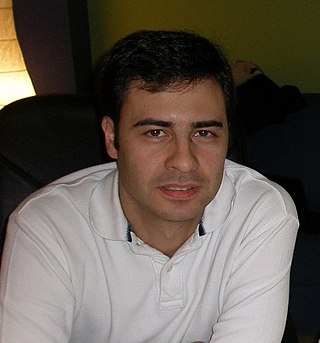
Alejandro López Román is a Spanish composer and pianist. Musician of eclectic style, his works cover both current symphonic composition like jazz or film music.
Benet Casablancas Domingo is a Catalan composer and musicologist.
Flores Chaviano is a Cuban composer, guitarist, professor and orchestral conductor that has achieved great international recognition.

José Antonio Cubiles Ramos was a noted Spanish pianist, conductor and teacher.
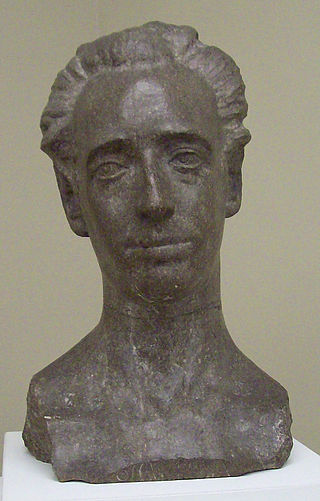
Óscar Esplá y Triay was a Spanish composer. The Conservatorio Superior de Música (conservatory) of the city of Alicante is dedicated to him. The Premio internacional de composición Óscar Esplá was created in 1955 and is awarded by the city of Alicante.
Miguel Ángel Gilardi is an Argentine orchestra conductor. He has conducted throughout the world, recorded many concerts and received several awards, including the 2010 Premio Bicentenario.
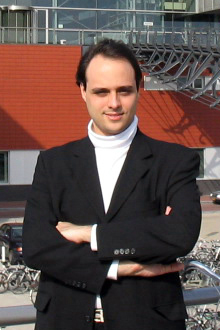
Juan Manuel Abras Contel is a classical music composer, conductor, musicologist and historian from Sweden. Born in Stockholm to a European family that moved around the world, Abras became a cosmopolitan artist and scientist.
Manuel Ochoa was a Cuban exile musician, choral and orchestra conductor who founded the Miami Symphony Orchestra.
Fernando Rosas Pfingsthorn was a Chilean orchestra conductor and one of the founders of the Youth and Children's Orchestras Foundation of Chile.
Fabián Panisello is an Argentinian-Spanish composer, conductor, and professor.
The bowed string instruments have been always present in Cuba since its discovery, first as the viol or bowed vihuela and at a later time as the Italian violin. As other instruments and the culture in general, also the violin enjoyed in Cuba a period of great relevance during the 19th century. The violin was part of the instrumental ensembles that accompanied the Contradance and the Dance, the first Cuban musical genres, as well as other subsequent genres as the Danzón and the Cha cha cha. The violin also intoned some of the most beautiful melodies composed in Cuba, such as "La Bella Cubana" by José White. At all times, the Cuban violinists have been prominent representatives of the Cuban music throughout the entire world.
Rafael Machado is a Cuban violinist.
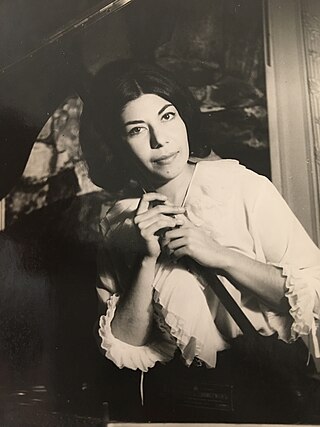
Maria Teresa Naranjo Ochoa was a Mexican virtuoso pianist and teacher.
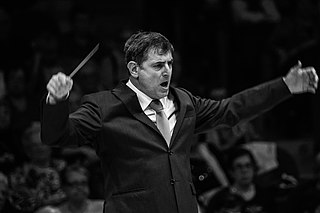
Salvador Brotons is a Catalan composer, conductor, and flautist.
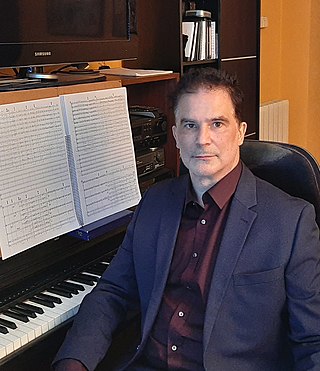
Eduardo Soutullo is a Spanish composer and filmmaker. He was the recipient of the Spanish Ministry of Culture's National Prize in Music (composition) in 2023. The jury awarded the prize to Soutullo for "the unanimous international recognition of his music especially his orchestral production, highlighting the premiere in Saint Petersburg of his antiwar cantata "The lament of sunflowers”.
Juan Carlos Fernández-Nieto is a Spanish-American pianist. He was described by Westdeutsche Allgemeine Zeitung as "A musical sculptor who chisels out melodic lines with sharp contours". and "He set off a firework on the 88 piano keys which excited the audience in the Kulturzentrum right from the start"
References
- ↑ "Página Web de Guillermo González". Archived from the original on 2010-01-07. Retrieved 2011-11-07.